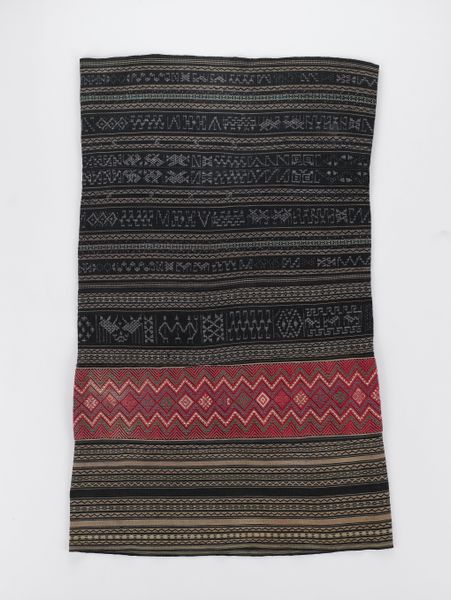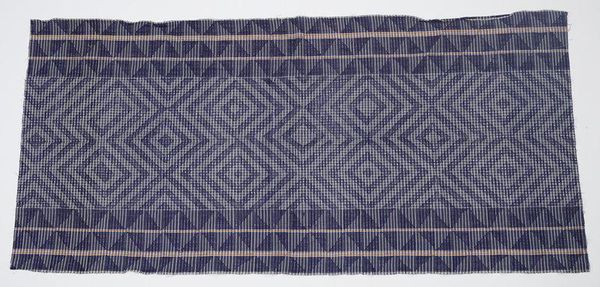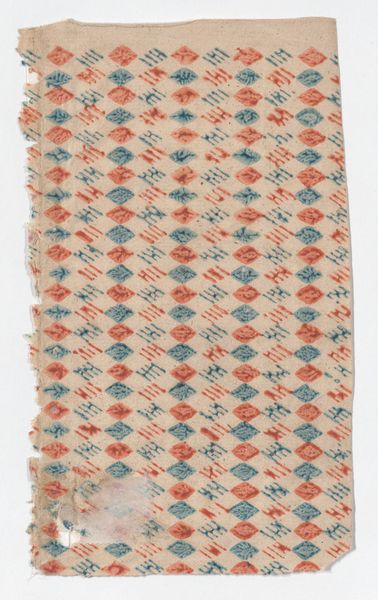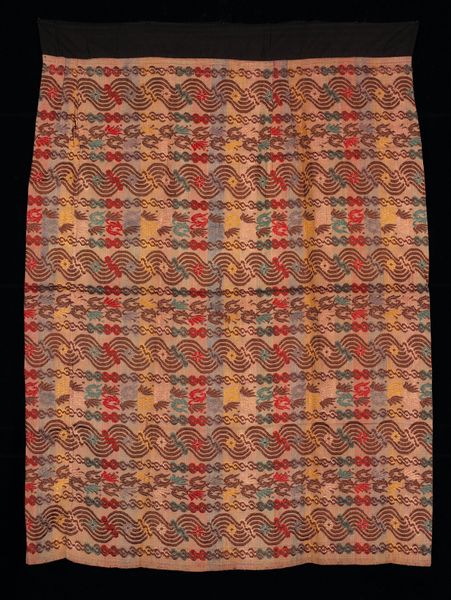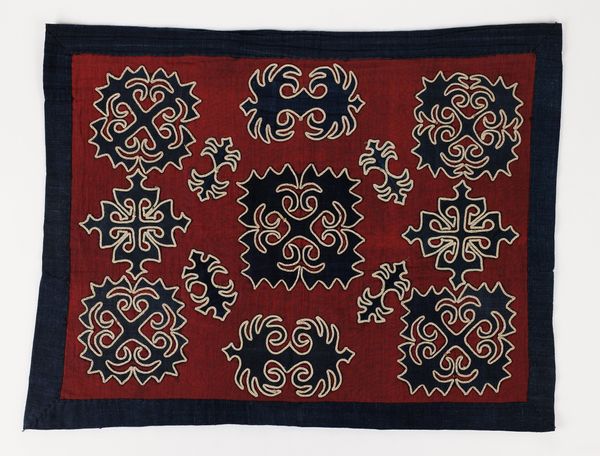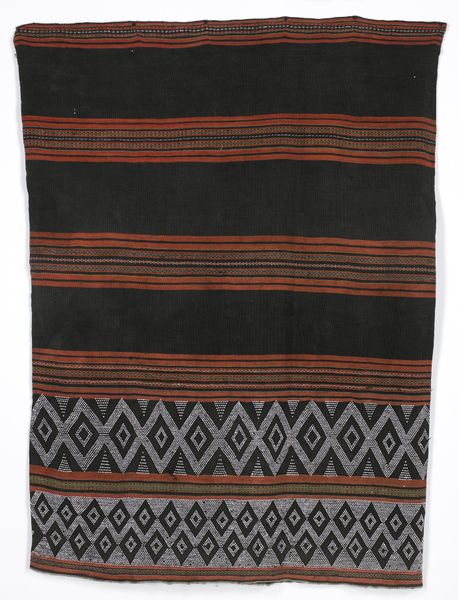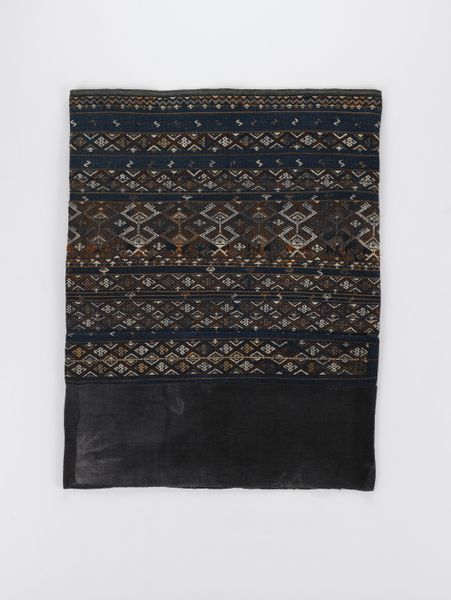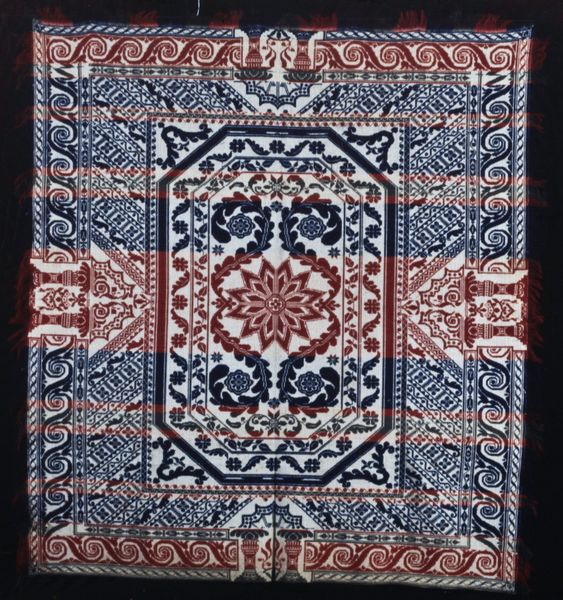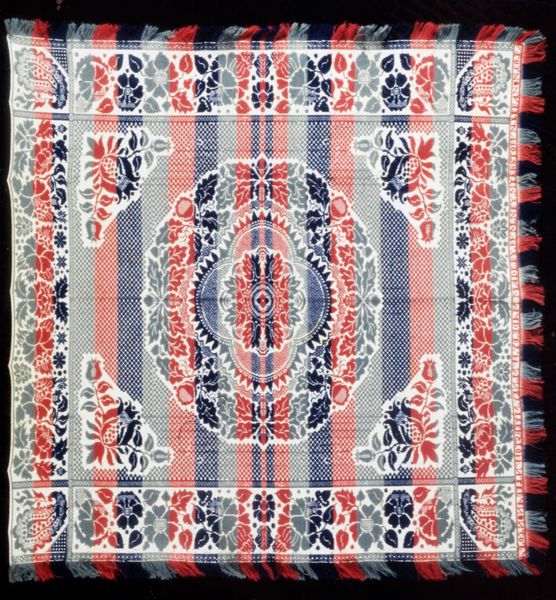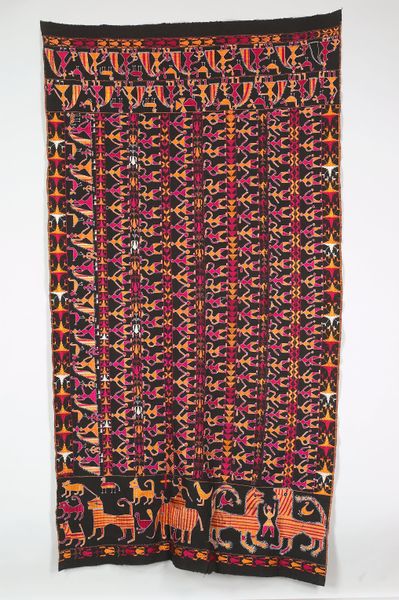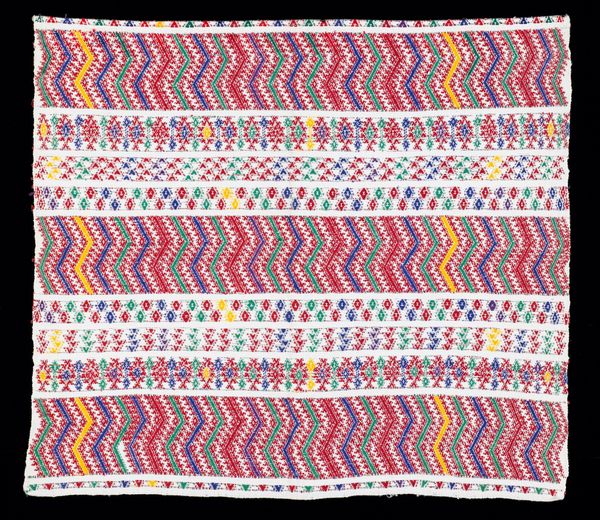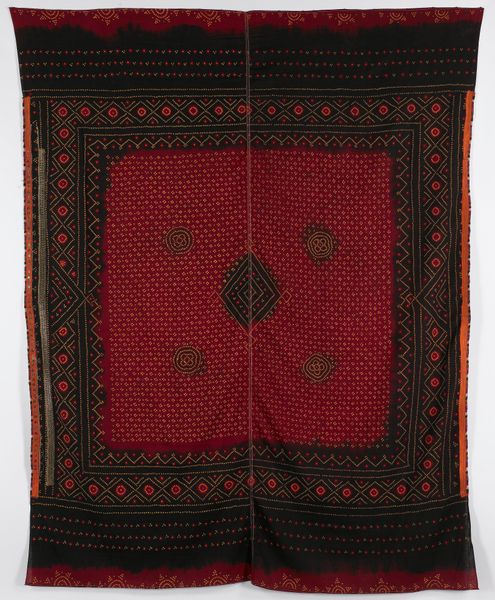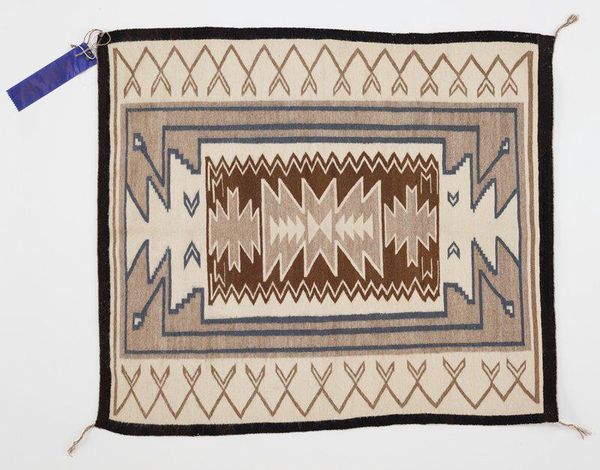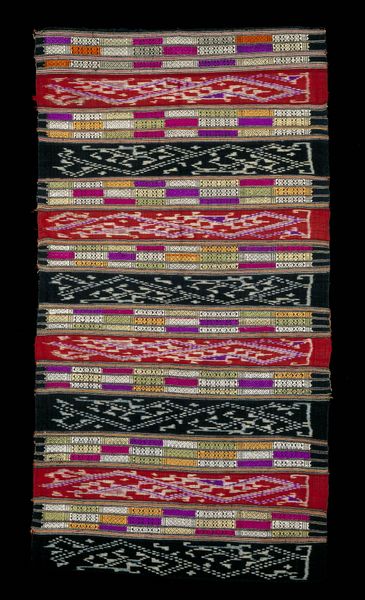
Dark blue-ground decorative scarf (tisaji) with geometric patterns c. 19th century
0:00
0:00
weaving, textile
#
naturalistic pattern
#
weaving
#
textile
#
geometric pattern
#
pattern design
#
organic pattern
#
geometric
#
repetition of pattern
#
regular pattern
#
pattern repetition
#
textile design
#
layered pattern
#
combined pattern
Dimensions: 28 1/2 × 10 3/8 in. (72.39 × 26.35 cm) (overall)
Copyright: Public Domain
This dark blue decorative scarf, or tisaji, features geometric patterns woven by an anonymous hand. Notice the diamonds, chevrons, and hourglass shapes, recurring motifs that echo across cultures and epochs. The chevron, for instance, appears in ancient Greek pottery as a symbol of progress, while the diamond signifies enlightenment in Buddhist mandalas. Such symbols recur in indigenous art, carrying different yet resonant meanings. In this tisaji, the hourglass form mirrors its use in other cultural contexts, suggesting the transient nature of time and the passage of generations. These aren't mere decorations, but rather, visual echoes of ancestral knowledge, subtly influencing our perception. Consider the emotional power of patterns – how they stir subconscious memories and evoke a sense of continuity. Just as the Laocoön sculpture embodies human suffering, these woven symbols tap into primal understanding. This scarf is not just a textile, but a canvas of collective memory.
Comments
minneapolisinstituteofart about 2 years ago
⋮
This decorative scarf is called tisaji in Okinawan. By Okinawan custom, a young woman would weave such a scarf from yarn she dyed herself and then present it as a token of her romantic interest to the man she wished to marry. Such scarfs were also believed to carry talismanic powers, and they appear in several traditional Okinawan dances. Like the nearby winter robe, this scarf is made with the exclusive Yomitanzan hanaori technique, introduced to the Ryūkyū Islands from Southeast Asia via trade routes in the 1300s or 1400s. Sumptuary laws restricted the technique under Ryūkyūan rule.
Join the conversation
Join millions of artists and users on Artera today and experience the ultimate creative platform.
